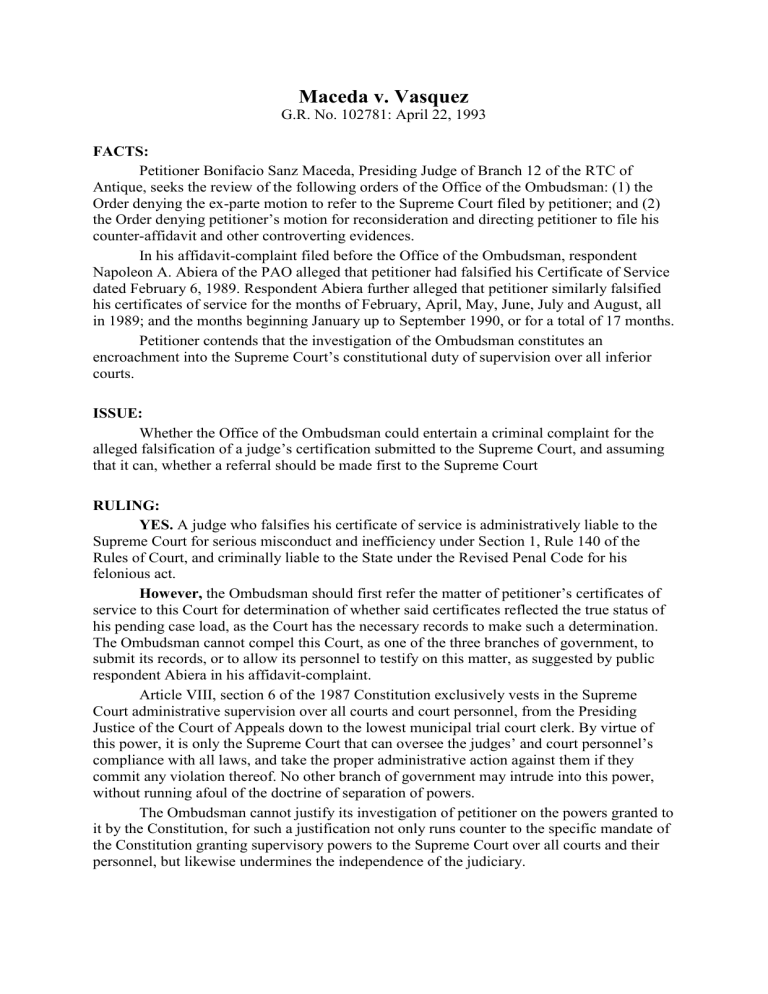Maceda v. Vasquez: Ombudsman Jurisdiction & Court Supervision
advertisement

Maceda v. Vasquez G.R. No. 102781: April 22, 1993 FACTS: Petitioner Bonifacio Sanz Maceda, Presiding Judge of Branch 12 of the RTC of Antique, seeks the review of the following orders of the Office of the Ombudsman: (1) the Order denying the ex-parte motion to refer to the Supreme Court filed by petitioner; and (2) the Order denying petitioner’s motion for reconsideration and directing petitioner to file his counter-affidavit and other controverting evidences. In his affidavit-complaint filed before the Office of the Ombudsman, respondent Napoleon A. Abiera of the PAO alleged that petitioner had falsified his Certificate of Service dated February 6, 1989. Respondent Abiera further alleged that petitioner similarly falsified his certificates of service for the months of February, April, May, June, July and August, all in 1989; and the months beginning January up to September 1990, or for a total of 17 months. Petitioner contends that the investigation of the Ombudsman constitutes an encroachment into the Supreme Court’s constitutional duty of supervision over all inferior courts. ISSUE: Whether the Office of the Ombudsman could entertain a criminal complaint for the alleged falsification of a judge’s certification submitted to the Supreme Court, and assuming that it can, whether a referral should be made first to the Supreme Court RULING: YES. A judge who falsifies his certificate of service is administratively liable to the Supreme Court for serious misconduct and inefficiency under Section 1, Rule 140 of the Rules of Court, and criminally liable to the State under the Revised Penal Code for his felonious act. However, the Ombudsman should first refer the matter of petitioner’s certificates of service to this Court for determination of whether said certificates reflected the true status of his pending case load, as the Court has the necessary records to make such a determination. The Ombudsman cannot compel this Court, as one of the three branches of government, to submit its records, or to allow its personnel to testify on this matter, as suggested by public respondent Abiera in his affidavit-complaint. Article VIII, section 6 of the 1987 Constitution exclusively vests in the Supreme Court administrative supervision over all courts and court personnel, from the Presiding Justice of the Court of Appeals down to the lowest municipal trial court clerk. By virtue of this power, it is only the Supreme Court that can oversee the judges’ and court personnel’s compliance with all laws, and take the proper administrative action against them if they commit any violation thereof. No other branch of government may intrude into this power, without running afoul of the doctrine of separation of powers. The Ombudsman cannot justify its investigation of petitioner on the powers granted to it by the Constitution, for such a justification not only runs counter to the specific mandate of the Constitution granting supervisory powers to the Supreme Court over all courts and their personnel, but likewise undermines the independence of the judiciary.